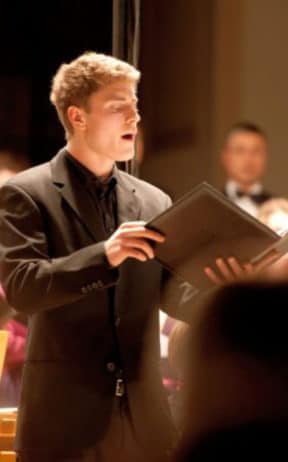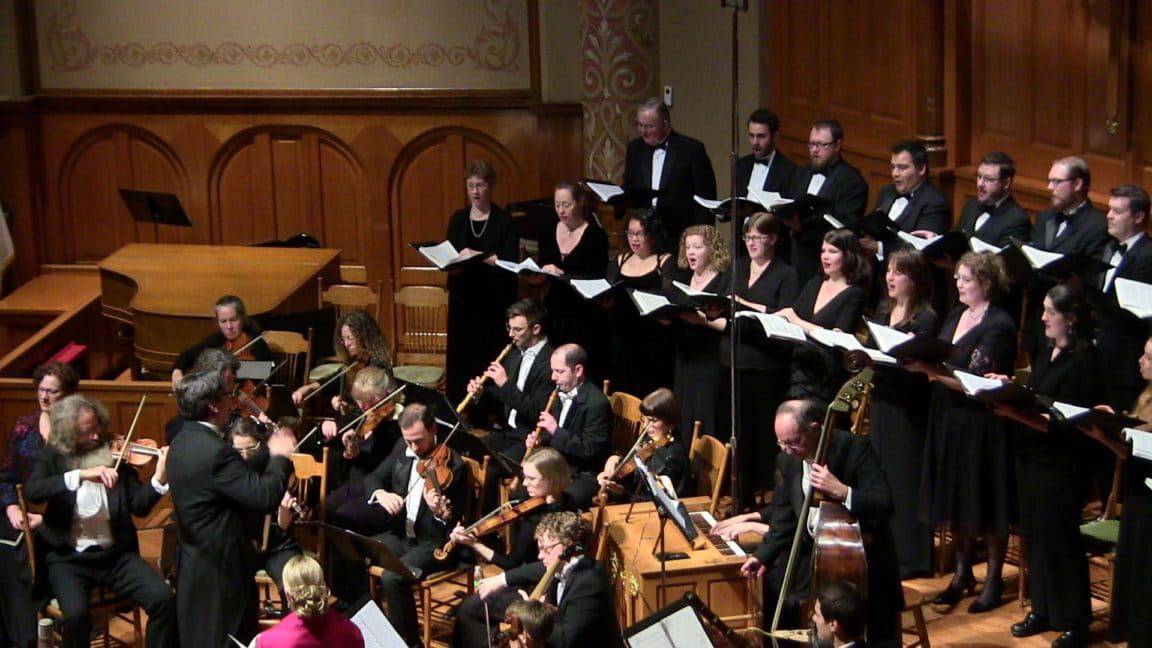I recently ushered at Portland Baroque Orchestra’s Dec. 8 performance of Handel’s Messiah at First Baptist Church in Portland. I looked forward to the music less for excitement than for its familiarity, since I had heard it many times before, both in concert and on the radio. But I was in for a surprise.
This was the first time I had heard the Messiah with truly baroque instruments, techniques, and voices. I was just blown away. I’m sure that part of it was the skill with which PBO, Portland choir Cappella Romana, and three talented young soloists played and sang. But it was also because this historically informed performance displayed an authenticity that I hadn’t experienced before with this popular masterpiece.
Along with the names of the musicians, the program listed their instruments. Here are some of the violins: N. Amati of Cremona (1670), Anonymous 18th Century German, Mathias Knilling of Mittenwald (1835), and an 1899 copy of ‘Alard‘ Stradivarius of Cremona (1719). The lead trumpeter played an English instrument designed after Johann Leonhard Ehe III of Nuremburg (1746). This showed how serious these musicians are about the authenticity of their music.

Paul Agnew, well known in the world of baroque music, played the dual role of tenor and guest conductor quite competently. Legendary early music conductor William Christie appointed him Joint Musical Director of the famous French baroque ensemble Les Arts Florissants.
Although I am not an authority on baroque music, I know that it has always been closely tied to dance, in which gesture and movement of the body is reflective of the human spirit. This was evident in the lightness with which the orchestra played. Tempos were faster than what I’d heard before, with never a compromise of precision, but the whole approach was much more delicate. There was more variation in effort, more subtlety in phrasing, more expression of emotion in a single line, even a single note. I felt as though I had put on my glasses for this music — everything was in sharper focus. There was greater definition, more transparency than I had experienced in previous Messiahs.
Instead of the usual contralto, the young Polish countertenor, Jakub Józef Orliński, sang those arias, and he was superb, using an unusual — at least in our time, if not Handel’s — amount of ornamentation and variations in phrasing to dramatic effect. Cappella Romana also used more subtle phrasing than I was used to. But there was never a lack of force or volume when needed. I felt as though these performers knew what the oratorio was all about, that they understood the meaning of the words and knew how to convey it.
I thought I’d heard it all before, but after PBO and Cappella Romana’s performance, for me, the Messiah will never be quite the same.




